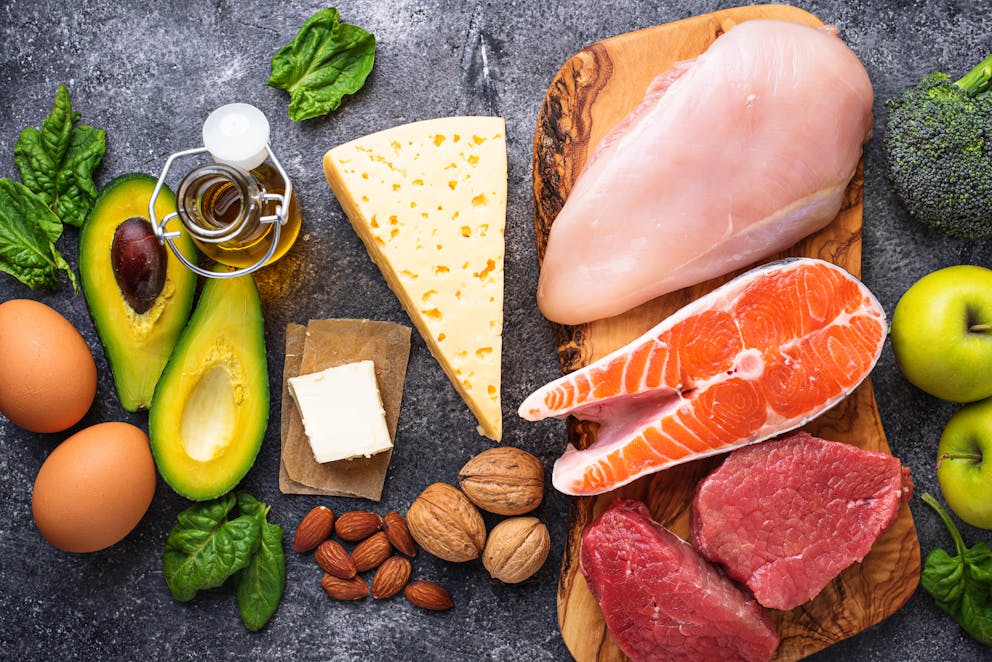How to Help a Friend Lose Weight
Odds are that even if you are not in the process of trying to lose weight, one of your friends or family members is. The best way to be effective at losing weight or give good advice on weight loss is to first understand how the process works.
Learn about weight loss, what factors affect it, and the best steps to take to increase your efficiency.
Rethinking Caloric Intake for Weight Loss
When trying to shed pounds, calories can seem like your adversary. But it turns out that slashing calories can backfire because our bodies are more complicated than simple math problems.
The Metabolic Downshift
Think of your metabolism as a cozy campfire. When you feed it plenty of wood (calories), it burns bright and steady. Cut off its supply, though, and the fire dies down to preserve resources—your body slowing things down when calorie intake plummets.
Harvard Health explains this metabolic adaptation and why severe calorie restriction isn't always the key to weight loss success.
Nutrient Deficiency Risks
A diet too low in calories risks leaving you short on essential nutrients.
Your body needs nutrients not just for health but also for shedding pounds effectively. Ensuring you are eating plenty of nutrient-rich foods is one of the best ways to lose weight.
Protein Choices and Their Impact on Insulin
When managing your waistline, some proteins can trigger higher levels of insulin, which can impede fat loss.
Be aware of how different proteins affect your body and read labels carefully to make sure you are getting the right kinds.
Go too lean, and you might find yourself back at square one with weight loss efforts taking a hit because low-fat options have been shown to increase insulin more than those with a bit more heft in the fat department.
The key is moderation and mixing things up – think fatty fish or grass-fed steak.

Carbohydrates, Cravings, and Insulin Resistance
High-carb diets often lead to a cycle of constant cravings because they send your insulin levels on a wild ride.
This can have many repercussions for your health.
The Science of Carbs and Hunger
Eating carbs can cause spiked blood sugar levels to rise quickly, increasing insulin production from the pancreas.
As this happens repeatedly, cells may become less responsive to insulin—a condition known as insulin resistance—which keeps glucose out of cells where it could be used for energy.
This leads to a decrease in the body's fat-burning ability, leaving you feeling hungry.
Building Insulin Sensitivity
Better management strategies can help reverse this effect by improving our bodies' sensitivity to insulin.
Simple steps include choosing foods with lower glycemic indexes or incorporating regular exercise into our routines—both proven tactics that enhance weight loss outcomes by taming those troublesome cravings once and for all.
Exercise vs. Diet in the Weight Loss Equation
We've all heard, "You can't outrun a bad diet," and guess what? It's not just a catchy phrase; it's backed by science. It turns out that exercise, while important for your health, is not the most effective way to lose weight.
While physical activity has its health perks, dietary changes pack the biggest punch when we talk strictly about shedding pounds.
Prioritizing Dietary Changes Over Physical Activity
Sure, hitting the gym feels great and builds muscle, but here’s a shocker: only about 15% of weight loss success comes from physical activity. That leaves a whopping 85% attributable to what’s on your plate.
So, while you lace up those sneakers for another run, remember that real change happens in the kitchen.
Diet trumps dumbbells because every calorie counts—and they add up quicker than you can burn them off.
The Psychology of Weighing Yourself
Stepping on the scale can feel like your personal truth serum, spitting out numbers that cut through all the sweat and effort to tell you how you're doing. But what if I told you that fixating on those daily digits could mess with your head?
It's true; weighing yourself every day without zooming out to see the bigger picture of health improvements might lead to throwing in the towel way too soon.
Beyond the Scale
Scales don't measure perseverance. When we start making healthier choices, our bodies respond in ways not immediately reflected by weight alone.
Sure, seeing progress motivates, but let’s shift focus from fleeting figures to lasting lifestyle changes. Celebrate every step forward—no matter how small—because each one adds up big time for your well-being.

Timing Your Meals for Weight Loss Success
Frequent snacking is like putting small amounts of gas in every hour—it keeps insulin levels on a roller coaster ride. Intermittent fasting simplifies this by creating longer stretches where your body can cruise on what it has, burning fat more effectively.
If you're ready to give intermittent fasting a go, remember: It’s not about skipping meals; it’s about spacing them out strategically. This helps regulate insulin levels and gets you closer to your weight management goals.
Snacking Habits and Their Consequences
We've all been there—reaching for snacks throughout the day because we think little nibbles won't count much.
But these seemingly innocent bites add up, causing frequent insulin spikes that could be stalling our progress.
To shift gears toward success in weight loss, try limiting snacks or combining them with meals. This strategy gives you control over hunger without letting insulin take the wheel too often.
Educating for Long-Term Weight Management
It is important to know that severe calorie cuts do your metabolism no favors; they can slow it down. Instead, we need to focus on healthier habits overall.
Fostering Healthy Eating Habits
Moving beyond diet fads requires education on what truly works for weight management—and surprise—it's not rocket science. Lean into eating habits that honor your body’s nutritional needs without falling prey to quick fixes or restrictive diets that don’t stick long-term.
This means understanding protein types and their effects on insulin, how meal timing can work with your metabolism instead of against it, and why every snack might secretly sabotage you by spiking insulin levels too frequently.
Crafting Your Weight Loss Journey: Effective Strategies for Success Enhanced by the Potential of Turmeric
Embark on a transformative exploration of effective strategies of turmeric for weight loss.
Metabolism Boost: Curcumin has been studied for its potential to increase metabolism. A higher metabolic rate can lead to increased calorie burning, which may contribute to weight loss.
Fat Tissue Regulation: Some studies suggest that curcumin may impact the development and growth of fat cells. It may inhibit the expansion of fat tissue, potentially reducing overall body fat.
Anti-Inflammatory Properties: Chronic inflammation is associated with obesity, and curcumin is known for its potent anti-inflammatory effects. By reducing inflammation, turmeric may positively influence metabolic processes related to weight management.
Blood Sugar Regulation: Turmeric has been investigated for its ability to regulate blood sugar levels. Stable blood sugar levels can help control appetite and reduce the likelihood of excess calorie consumption.
Appetite Suppression: Some individuals report that turmeric has appetite-suppressing effects. This may be attributed to its impact on various hormones and neurotransmitters in hunger regulation.
It's important to note that turmeric is not a magic solution for weight loss, and results can vary among individuals.
A combination of a healthy, proper diet, regular physical activity, and overall lifestyle choices is crucial for significant and sustainable weight loss. Before making any significant changes, it's advisable to consult with a healthcare professional for personalized advice.
Conclusion
Achieving lasting weight loss involves more than just cutting calories. Focus on balanced nutrition, mindful eating, and strategic lifestyle changes.
Severe calorie restriction can slow metabolism and cause nutrient deficiencies, so prioritize a nutrient-rich diet and be aware of how foods affect insulin and hunger.
While exercise is important, dietary changes are more impactful for weight loss. Practices like intermittent fasting can help regulate insulin and improve fat burning.
Natural supplements like turmeric may offer additional support with their anti-inflammatory and metabolism-boosting properties.
Ultimately, fostering long-term healthy eating habits and staying informed about effective strategies are key. Consult healthcare professionals for personalized advice to ensure your approach is safe and effective.
Previous blog
Why Potassium Makes You EnergeticNext blog
Americas Favorite VegetableTags

Popular
08/21/2024
55K views
02/23/2025
46.4K views
11/18/2024
278K views
03/18/2024
11/21/2022




